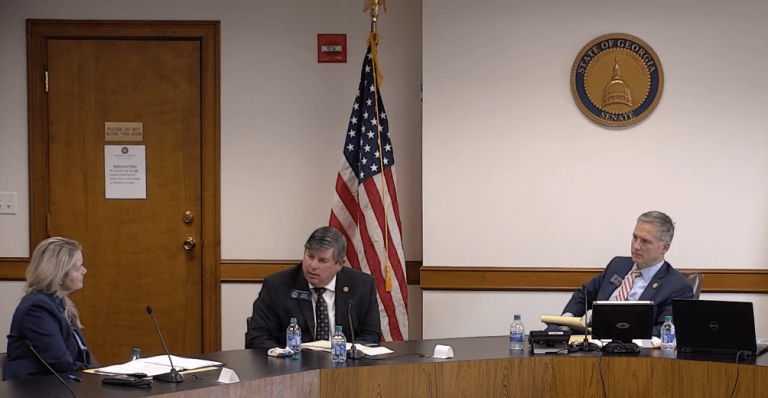
Caption
Sen. Larry Walker, a Perry Republican, said counties in his middle Georgia district have had problems with illegal cash payouts and "criminal activity surrounding sort of the bad actors in this industry.
Credit: Screenshot of Georgia Senate livestream

